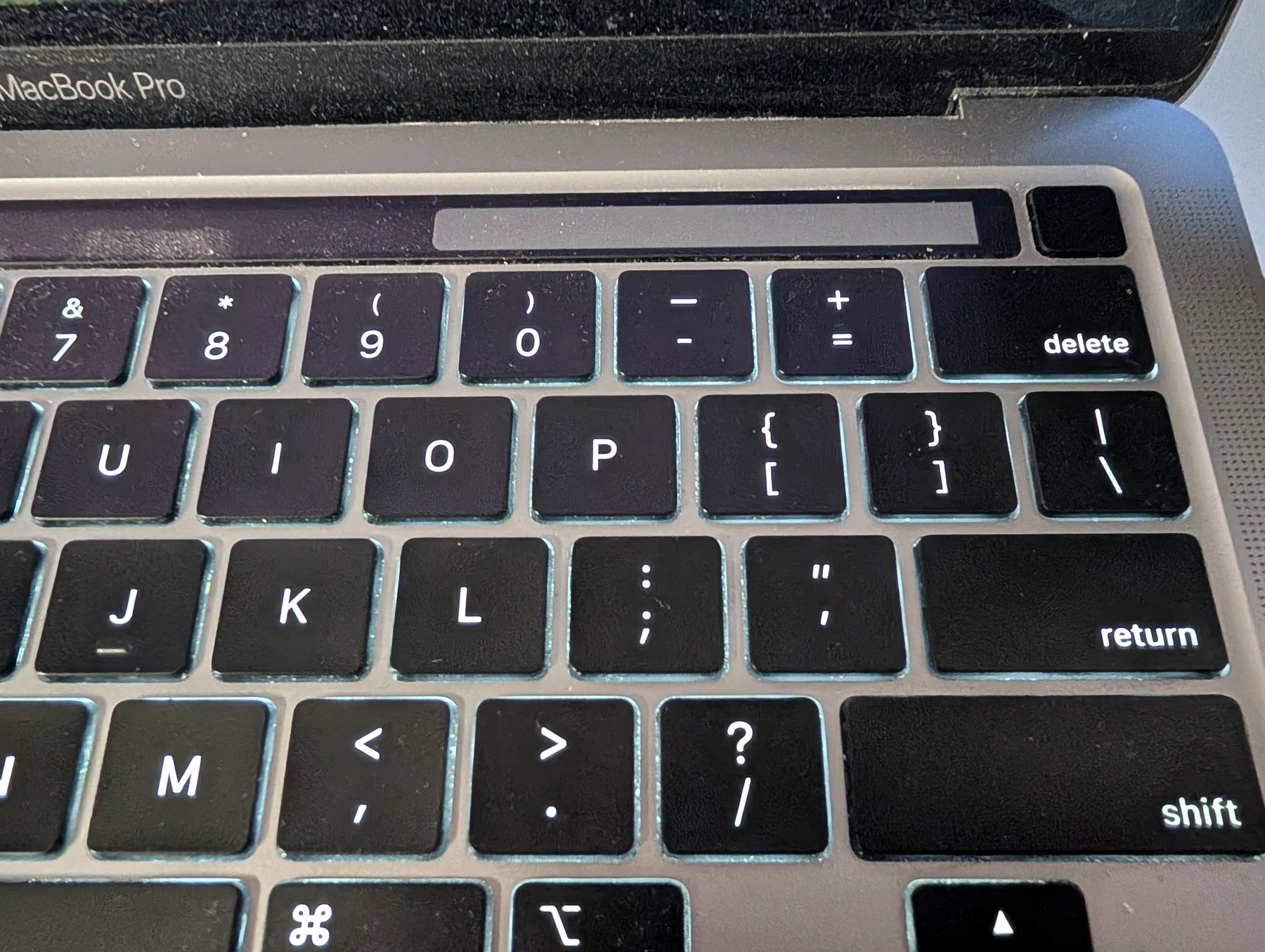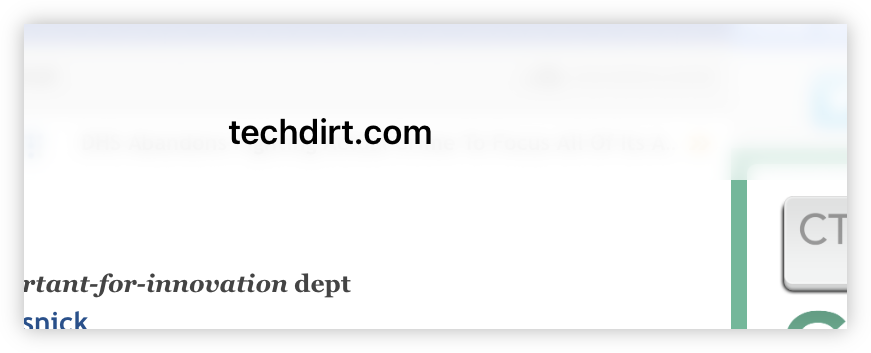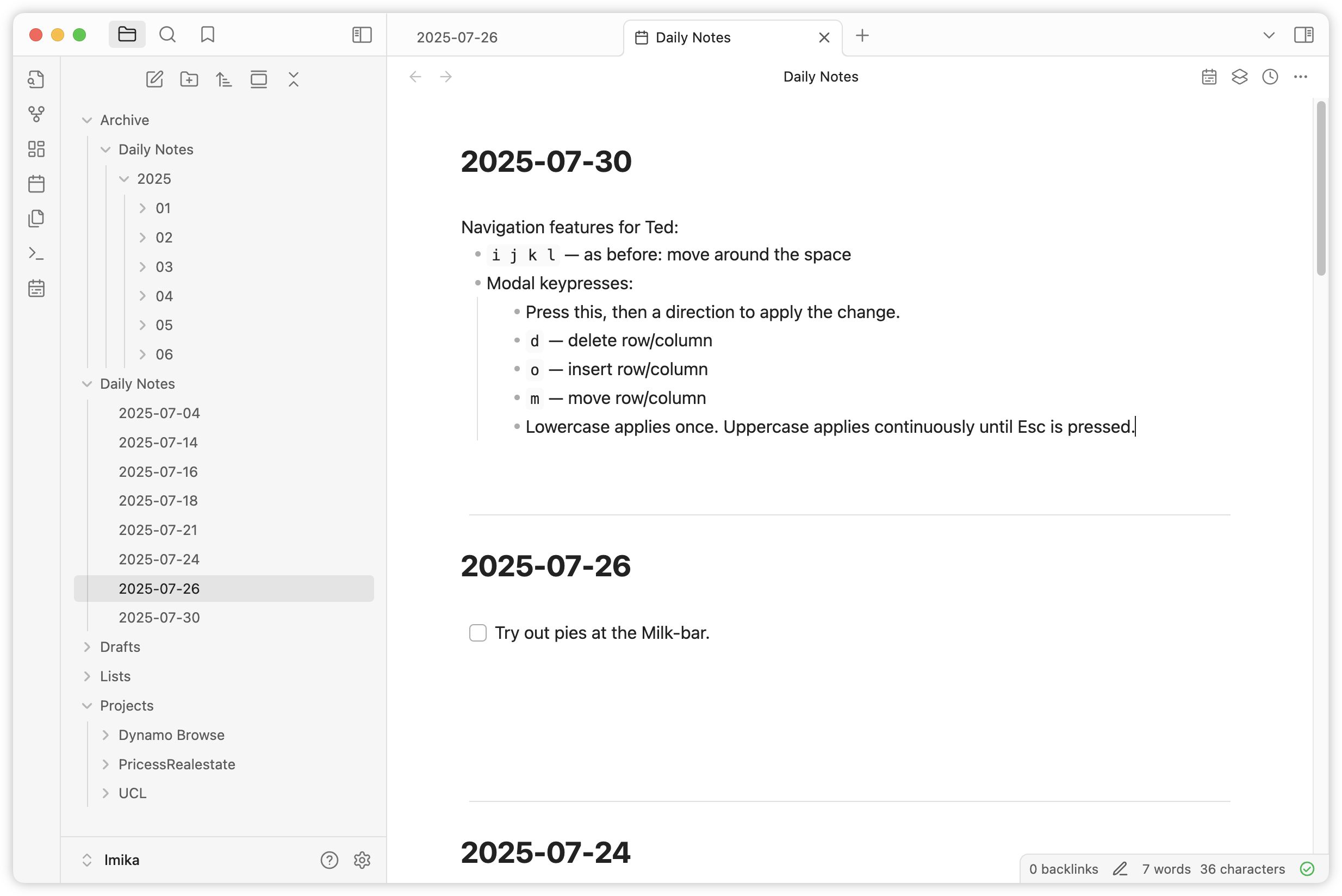-
Moving TIL Computer To Quartz
Moving TIL Computer from a blog-like technical stack to Quartz 4 to enhance its functionality as a knowledge repository, transitioning from a blog format to a more wiki-like architecture while integrating with Obsidian for content management. Continue reading →
-
I used to be an AWS Step Function guy. Couldn’t stand the YAML, but the execution model was decent and it was reasonably featureful. But now I’m using Temporal and I’m starting to like it a lot. Provides just enough workflow for those cases where Step Functions is overkill. Plus, no YAML!
-
Looks like my touch-bar didn’t show up to work today.

-
🔗 Aresluna: Frame of preference
This walk through the various preference windows of MacOS is amazing. The way they integrate Infinite Mac alongside it: genius. Best explored while listening to ATP Overtime.
-
Enjoying listening to the latest Talk Show with LMNT (I'm about 67% through it so far). Especially liked this part about Safari, and not just because it validated my feelings about it. 😀
-
If anyone’s interested in rebooting the Core, here’s your premise: rich tech entrepreneurs are sick of slow terrestrial Internet speeds. One comes up with a solution: instead of laying deep-sea cables around the Earth, why not lay cables through the Earth? A venture is formed and work begins. But uh-oh: they got too greedy and tunneled too deep. Throw in shots of cities getting destroyed, people yelling at each other in offices, a crack team of heroes being assembled for the Virgil II, and boom! You’ve got a disaster movie. I may watch that on a long haul flight.
-
Pro-tip: install software updates for your tools before you want to use them, not when you want to use them.
-
There was something about the appearance of iOS 26 Safari WebViews I wasn’t too sure about, and now I know: there’s a material transition between the header and the web-page, but there’s nothing separating the two. No edge, no gradient. This looks unnatural and, dare I say, a little amateur.

-
“Get out more” goal for July failed. ❌
Not my fault this month: plans fell through. But will attempt to remedy this in August.
-
TIL that Donaldson’s Dairy from which Hairy Maclary resides is what we call a milk-bar on this side of the Ditch. Growing up and having these stories read to me, I always thought it was like a dairy farm. Odd to think this in retrospect, given that the setting is essentially a suburban street.
-
Nah, shortcuts’ not gonna work this time. Looks like I’ll have to do this fix properly. 🚶➡️
-
I can’t decide if a busy work or a slow week is worse. Busy weeks are frantic in the moment, but there’s always a sense of accomplishment at the end, even if you can’t remember what you did. I’ve also lived through weeks where nothing happened, and I must say: that feeling of time wasted lingers.
-
I wonder if the prudent course of action for iOS app developers is to hold off from releasing their redesigns on day one. I wonder if iOS’s new look will be overwhelming for users and having an app that’s unchanged for a week or a month could provide them with something familiar to them. 🤷
-
Wow, Slack just crashed. Haven’t experienced that in a while. At least it kept the draft I was writing so I didn’t loose anything.
-
The thing about testing, at least in my experience, is that the total time actually spent testing the logic is probably around 20%. The other 80% is setup, finding test data, fixing unrelated things, discovering other bugs blocking you, etc. It’s just a slog through one problem after another.
-
Today’s the day that I listen to the linter say “you know, you could improve your code here” instead of telling it be quiet with
nolintcomments. -
🛠️ Obsidian Plugin: Daily Notes Editor
Displays all your daily notes in a single editor tab, much like Roam Research. This was a feature I liked about Roam, and when I first looked at Obsidian, I wish it had it. Trying it out on my personal vault, where the daily notes tend to be quite small.

-
Yes, I am going to spend 30 minutes obsessing over what information log messages have. It’ll save me the 4 hours I spent trying to get this information next time I need it, because past me didn’t obsess over these log messages enough.
-
🔗 Daring Fireball: Microsoft Introduces ‘Copilot Mode’ in Edge
Some follow-up from my recent pondering about chatbots in browsers. From Gruber:
I think something similar is behind Microsoft trying to make Copilot front-and-center in Edge, and Google’s concurrent move to junk up Chrome with AI-generated suggestions. Their goal is to make their web browsers chatbots faster than OpenAI can make ChatGPT a web browser.
Okay, that’s plausible. If it’s just a fight for mindshare than I can understand this. Still not sure what OpenAI’s motivations are, but it does look like these other companies are just reacting here.
-
🔗 Daring Fireball: Google Chrome Adds AI-Generated Store Summaries
Now browsers themselves will be adding their own layers of distracting cruft atop the websites. The entire premise of Chrome — the reason for its name — is that it was originally designed to simplify the UI of the browser app itself, the “chrome”, at a time when Internet Explorer and even Firefox were increasingly cluttered and confusing.
I’m confused as to why Google and all these AI companies are so gun-ho about adding AI agents to browsers. What do they get out of this deal? Is it just a way for them to win users and get data from their browsing habits? Is it protection against Google potentially dissuading these users away from using their chat-bots? These are not problems Google has, so why are they doing this?
They seem like features designed to turn the dial up on Google’s slice of commissions from web transactions.
Maybe, but how can they collect? If they run AI over the web-pages that a user visits, when the user converts, how are they going to tell the website owner that they help “bring in the eye-balls” thanks to AI and have earned X% off the top? Maybe they’ll only run these AI agents on sites that “opt-in” in some way, either by using Google Pay or paying more for Google ads. I can see that happening.
All very strange. In either case, I’m glad I’m rocking Vivaldi these days.
-
Barely took me a week to realise that weekly notes in Obsidian is not for me. Thought I could use them to track week-long TODO list. But after a busy day yesterday, the note was already long enough that scrolling to the top to add a TODO was a bit much. These daily notes get quite large apparently.
-
I’ve changed my mind about relative date-stamps in software listings. I no longer like them, even when the event is recent. No more “3m ago” or “7h ago” (and definitely no “3 months ago” which tells me nothing). Just give me an absolute date and time, please.
-
The trouble with Holmes’ axiom is that it’s in direct opposition to Occam’s razor, which tends to be the answer more often than not. So one is likely to come to the improbable cause of an issue last, once all the simple causes have been tried and rejected. That’s probably the right way to do things, but it does slow things down in cases where time may be of the essence.
In other words, the only way to get to the improbable is by eliminating all that is likely yet impossible. There are no shortcuts.
-
Sherlock Holmes would’ve been an amazing developer:
When you have eliminated all which is impossible, then whatever remains, however improbable, must be the truth.
-
I suspect half the reason developers like to complicate things is to just talk about them. Overhearing two colleagues right now talk about React, Next.JS, and how they’re managing state in their personal projects. As someone with no interest in React, it’s hardly a boast of my abilities to walk over there and say, “well the last project I worked on uses HTML and a bit of vanilla JavaScript.”